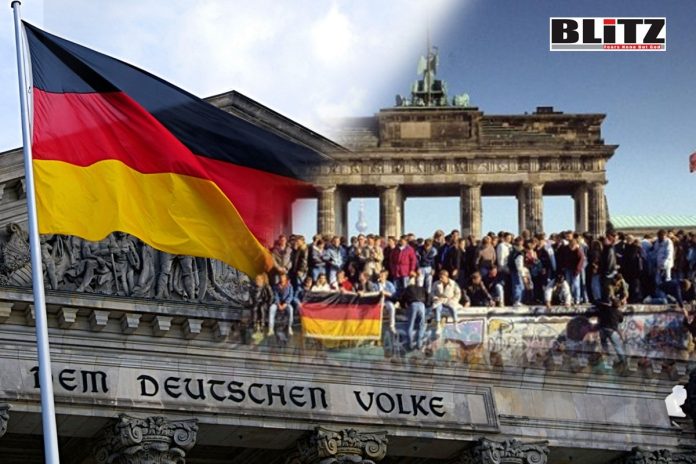Three decades after the fall of the Berlin Wall, Germany stands at a crossroads, grappling with the enduring legacy of division and the resurgence of anti-establishment sentiments, particularly in the eastern states that once comprised the German Democratic Republic (GDR). As the nation braces for regional elections in these states, the rise of the far-right Alternative für Deutschland (AfD) party underscores the persistent challenges facing the east and the urgent need for a deeper understanding of its socio-political dynamics.
The roots of the East-West divide run deep, entrenched in decades of separation and ideological polarization. East Germans, affectionately known as Ossis, have long felt marginalized and misrepresented in a media landscape dominated by their western counterparts, or Wessis. Despite efforts at reunification, these divisions persist, shaping attitudes and perceptions in both regions.
The sentiments expressed by Mathias Döpfner, CEO of Axel Springer, epitomize the enduring biases that permeate the national conversation. His leaked comments, which cavalierly label Ossis as either “communists or fascists,” stand as a poignant testament to the entrenched prejudices that obstruct meaningful dialogue and reconciliation. Such remarks not only reinforce negative stereotypes but also exacerbate divisions within German society, perpetuating a climate of mistrust and animosity. By reducing complex identities to simplistic and derogatory labels, Döpfner’s words undermine efforts to bridge the gap between East and West and hinder progress toward genuine understanding and unity.
Similarly, government officials have expressed doubt regarding the preparedness of East Germans for democratic principles, citing a lingering affinity for the authoritarian legacy of the GDR. These sentiments not only reinforce existing stereotypes but also fuel political apathy, as mainstream parties frequently marginalize the concerns of East Germans due to their smaller demographic representation. By overlooking the unique challenges faced by East Germans, policymakers risk exacerbating divisions and undermining efforts to foster inclusivity and unity within the nation.
The prevailing sense of alienation has provided a fertile breeding ground for the AfD, which has adeptly leveraged sentiments of disenfranchisement and bitterness. Through grassroots mobilization and messaging steeped in East German pride, the AfD has solidified its influence in the region, portraying itself as the champion of the marginalized and overlooked. This strategic positioning has bolstered the party’s prominence, amplifying its resonance among disaffected segments of the population and perpetuating the cycle of division and distrust.
Addressing the underlying grievances of East Germans requires a nuanced approach that goes beyond mere condemnation. Empathy and acknowledgment of their unique experiences are essential steps toward fostering genuine reconciliation and understanding. The lived realities of East Germans during the GDR era cannot be dismissed as irrelevant; they continue to shape identities and attitudes to this day.
The economic disparities deepen the chasm, as East Germans contend with diminished disposable incomes and inheritances far below those of their western peers. Despite attempts to narrow these discrepancies, the enduring east-west economic schism persists, fueling sentiments of injustice and resentment. This palpable divide underscores the lingering effects of historical inequities and underscores the imperative for concerted efforts to address systemic disparities and foster genuine economic parity across the nation.
The dawn of a fresh “east-west debate” heralds a pivotal moment in the nation’s discourse. Bestselling literary works authored by individuals hailing from the GDR provide invaluable perspectives on the systemic biases and power differentials perpetuating division. Among these, Dirk Oschmann’s acclaimed book, “The East: A West German Invention,” has struck a profound chord with readers, igniting essential dialogues concerning the intricacies of the east-west dynamic and the enduring hurdles of reunification. As these narratives resonate deeply with audiences, they serve as catalysts for introspection and collective reckoning, propelling society toward a more inclusive and empathetic understanding of its shared history and future trajectory.
As Germany charts its course through the complexities of the 21st century, the imperative of bridging the East-West gap looms large for nurturing national unity and fortitude. Such a task demands a deliberate and sustained endeavor to deconstruct stereotypes, redress economic inequalities, and validate the distinct narratives of East Germans. It is through authentic dialogue and concerted efforts at reconciliation that the vision of reunification can be fully actualized, and the lingering scars of division can be truly healed. By embracing these challenges with empathy and determination, Germany can forge a future where the bonds of unity transcend historical divides, fostering resilience and solidarity for generations to come.




